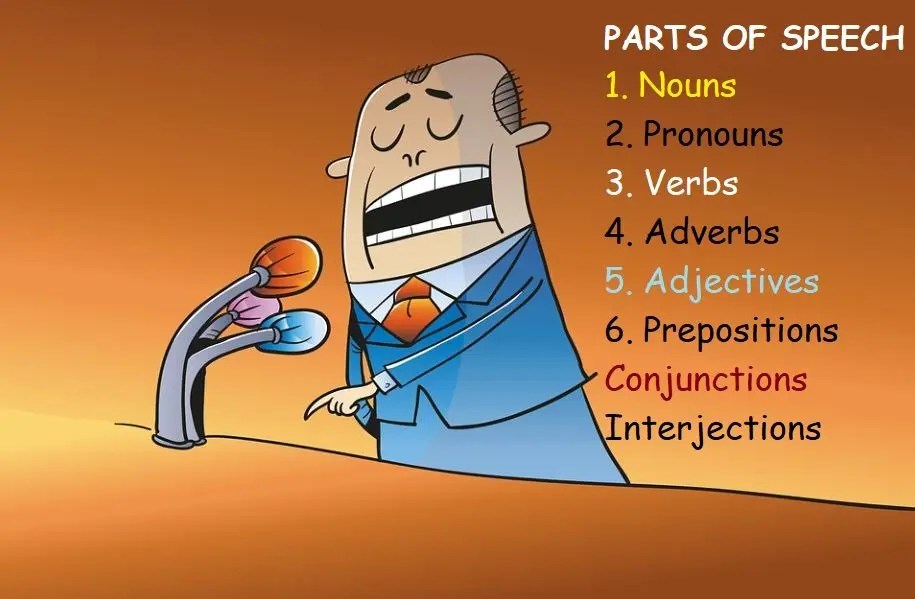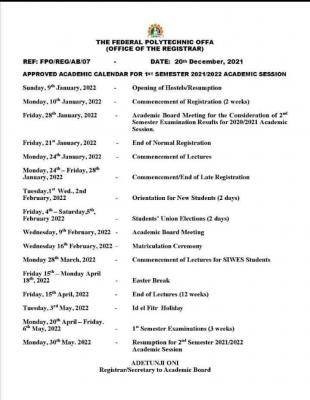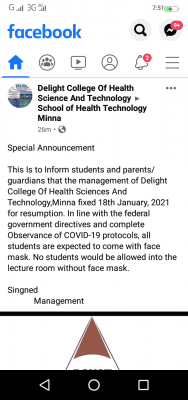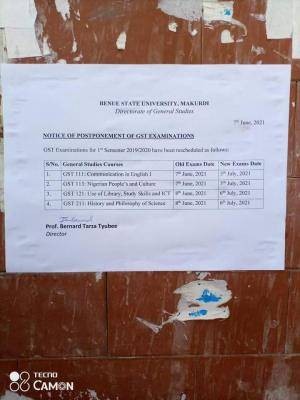
Every word in a sentence or speech is named and has its grammatical function. Each of these words contained in the sentence is called Part of SPEECH. The position, types and functions of these parts of speech are discussed in this article.
There are 8 parts of speech in English language. Namely;
- Nouns
- Pronouns
- Verbs
- Adjectives
- Adverbs
- Preposition
- Conjunctions
- Interjections
1. NOUN
Definition of a Noun; In the following sentences below, the underlined words are referred to as the Noun;
- Olu is my friend
- I was born and brought up in
- The goat is a domestic animal
- My father has a big house in the village
- I passed my examination in flying colors
- Beauty is in the eyes of the beholder
- Chemistry is one of my best subjects.
- Kelvin gave me a book on my birthday.
- We resumed on the 20th of October
- I will give you my laptop after you are done with cleaning the
From the words (nouns) in the above sentences, a noun can simply be defined as a word used to qualify a name, animal place, subject and object as well as things. Drawn the example above a noun is a name (Olu, Kelvin) place (Lagos, Village, rest room), things (laptop, books), ideas and concept (beauty), subject (Chemistry), day and month (Monday, October) animal (goat) and so on.
2.2 Types of Nouns
- Proper Nouns
- Common Nouns
- Collective Nouns
- Abstract Nouns
- Concrete Noun
Proper Noun
Thus refers to the specific names of people, animal, places, ideas, concepts and things. For instance, a girl has a specific name by which she is called e.g. a town could be called Onitsha,; a dog is named Bingo while a principal of a secondary school can be called Mr. Lucky.
Common Noun
This is a general name of things, places, people, concepts, animals and ideas. Example of common nouns are; girls, principal, towns, motels. Schools, woman, man, uncle, aunty and so on. They are referred to as common nouns because they are not the particular names by which the people, names, things, ideas, Principal and things being described are called.
Common Noun | Proper Noun |
| Boy, girl, man, woman | Tony Beatrice, Mrs Kelvin, Mrs Uche |
| School | Kings High School |
| Country, town, Market | Nigeria, Lagos |
| Market | Lagos Island market, Tradefare market |
NOTE: Every common noun has a specific or proper noun by which it is called. Every proper noun must begin with a capital letter.
For example:
- Ade met Dayo in Lagos
- Sheraton hotel is situated at Maryland
- We went to the village in January
Collective Noun
This is a noun used to refer to a group of a class of individual or items.
Examples:
A bunch of plantain
A fleet of cars
A flock of sheep
A team of players
Other words under collective nouns include committee, swarm (of bees), class (of students), audience, Family.
Abstract Noun
Abstract nouns are things or concepts that cannot be touched, seen; they exist in our imagination. We know for sure they exist by experience and feeling (emotions). Example of abstract nouns are; beauty, hatred, love, idea, death, wisdom, sickness, joy, sadness etc.
Concrete Noun
All types of nouns (common, proper and collective) except abstract nouns are concrete nouns because they can be seen and touched. All nouns are categorized into either countable or uncountable nouns. While countable nouns are those that can be seen and counted; that is, have singular and plural forms, uncountable nouns cannot be pluralized.
Examples of Countable Nouns are: A boy (boys), a man (men), a city (cities), a town (towns), a village (villages) a dog (dogs), a month (months), a basket (baskets) etc.
Examples of Uncountable Nouns are: Equipment, furniture, oil, air, waters etc.
Special units of measurements are used to pluralize uncountable uncountable nouns; these will be considered under plural of nouns.
2.3 Numbers: Plural of Nouns
Forming the plural nouns does not follow a particular pattern. The various forms are as follows;
a) Below in the table are some nouns that take – ‘s’ as plural form.
Example:
| Boy | Boys |
| Cup | Cups |
| Shoe | Shoes |
| School | Schools |
| Bucket | Buckets |
| Television | Televisions |
| Tractor | Tractors |
| Egg | Eggs |
| Bird | Birds |
| Fruit | Fruits |
b) Examples of nouns that take – ‘es’ as plural form
Example:
| Church | Churches |
| Mosquito | Mosquitoes |
| Box | Boxes |
| Branch | Branches |
c) Some nouns that end in – ‘y’ changed to – ‘ies’ to form plural.
Example:
| Lady | Ladies |
| Country | Countries |
| Baby | Babies |
| Army | Armies |
d) Some nouns that end in – ‘f’ or ‘fe’, have the ‘f’ or ‘fe’ changed to ‘ves’
Example:
| Knife | Knives |
| Half | Halves |
| Wife | Wives |
| Thief | Thieves |
e) Some Nouns that have their vowels changed to for plural words
Example:
| Tooth | Teeth |
| Man | Men |
| Louse | Lice |
| Crisis | Crises |
| Woman | Women |
| Mouse | Mice |
| Basis | Bases |
f) Some nouns take additional letters to form their plural
Example:
| Child | Children |
| Ox | Oxen |
g) Some nouns have the last two letters removed and replaced with a vowel:
| Medium | Media |
| Stadium | Stadia |
| Phenomenon | Phenomena |
| Stimulus | Stimuli |
| Syllabus | Syllabi |
| Criterium | Criteria |
| Pseudopodium | Pseudopodia |
| Stratum | Strata |
| Curriculum | Curricula |
Units of measurement are used with uncountable noun to indicate quantity.
Examples:
i) Cup (s) / pail (s) of water
ii) Grain (s) / bag (s) of rice
iii) a loaf (loaves) of bread
2.4 Functions of Noun
Nouns have five different grammatical functions depending on their position in a sentence. Nouns function as subjects of verb, objects of verbs, object complement, subject complement and complement of prepositions.
a) Subject of the Verb
When a noun occupies the first position in a sentence, it functions as the subject of the verb that comes immediately after it.
Examples:
i) Ayodele is a brilliant boy – subject of the verb, ‘is’
ii) Principal teach students at times – subject of the verb, ‘teach’
iii) Students are taught by principals – subject of the verb, ‘are taught’
Note: A subject is not necessarily the performer of the action, action can also be performed on it. The important thing is that the subject occupies the first position in the sentence. For instance, in example ii) above, the ‘principal’ who is the performer of the action, ‘teach’ is the subject, while in iii) the action is performed on the subject of the sentence yet they both function as the subject.
b) Object of the Verb
A noun functions as the object of the verb when it occurs immediately after the verb in the sentence. That is, the noun receives the action of the verb.
Example:
The teacher instructed Sola to sweep the class – ‘Sola’ is the object of the verb, ‘instructed’
ii) The accountant passed ICAN in 1967 – ‘ICAN’ (an professional examination) functions as the subject of the verb, ‘passed’. This is so because it receives the action of the verb ‘passed’
c) Subject Complement
When a noun refers to the subject or when a noun is the name if the person (thing) as the subject, it is said to function as subject complement. This means it is completing the meaning of the subject.
Example:
i) Mr John is a pastor – ‘pastor’ is the complement of the subject which is ‘Mr. John’
ii) My husband was the ‘Chairman’ at the reception – ‘Chairman’ functions as the subject complement because it is referring to the subject ‘my husband’ ‘the Chairman’ and ‘my husband’ (subject) are the same person.
Complement of Preposition
When the noun comes immediately after a preposition in the sentence, it is said to function as the complement of that preposition.
Example:
i) She comes to school once a week – ‘school’ functions as complement of preposition, ‘no’
Note: Without ‘school’ the meaning of ‘to’ will not be complete. The noun ‘school’ completes the preposition, ‘to’
II) The programme is transmitted on air every Sunday – ‘air’ functions as the complement of the preposition, ‘on’.
2. PRONOUN
A pronoun can simply be described as a replacement for a noun to avoid repetition.
Example:
I gave Dave the money Dave’s father sent to Dave.
To avoid repetition of the noun ‘Dave’ the above sentence can read thus:
I gave Dave the money her (pronoun) father sent to her.
Note: The pronoun ‘her’ replaces Dave in the sentence.
Pronouns include: he, she, them, us, it, this, these, that, those, we, I, you, each, somebody, someone, nobody,no one, many, few, several, something, myself, himself, herself, themselves etc.
Type of Pronoun
i) Personal Pronouns
These are: I, you, he, she, it, they, him, her, we, us, them. These pronouns refer to three categories of persons (people, objects, things, animals, ideas etc) They are;
i) First person – the person speaking or reporting an event.
ii) Second person – the person, thing or idea that is spoken of or to or being addressed.
iii) Third person – the person or thing that is spoken about or that is being discussed.
From the above categories of personal pronouns, we have expressions as first person, second person and third person singular and plural pronouns.
When each of the categories of pronouns is used with verbs, there must be agreement between the verbs and the pronoun in terms of singular and plural forms.
ii) Demonstrative Pronoun
This is another type of pronoun. Example are; this, that (singular) these, those (plural). ‘This’ and ‘these’ point out people or things that are close, while ‘that’ and ‘those’ point out things that are distant.
Examples:
- This is my father
- These are my friends
- Those are my brothers standing across the road
- That is the man who teaches us English language.
Note that a demonstrative pronoun is followed by a noun, it functions as an adjective.
3) Possessive Pronoun
They are called possessive pronouns because they show or indicate possession. They include; my, mine, ours, your, yours, her, hers, his, theirs, its.
Note: Just like a demonstrative pronoun, a possessive pronoun also functions as adjective if it is immediately followed by a noun.
Examples:
i) The principal has refused to release our bags (noun) – ‘our’ (a possessive pronoun) functions as an adjective qualifying the noun, ‘bag’.
ii) Her father is the new minister of education – ‘Her’ father qualify the noun, ‘father’
4) Interrogative Pronoun
This type of pronoun is derived from the word interrogation; these pronouns are used to ask questions. They are; who, what, where, whom, which.
Examples:
- Who sent you on this dangerous journey?
- What is your favorite food?
- Which of the buildings is yours?
5) Reflexive Pronouns
Reflexive pronouns make reference to the subject in the sentence. This type of pronouns are; himself, herself, myself, itself, themselves, ourselves, yourselves.
Examples:
i) My mother washes her clothes herself – ‘herself’ still refers to ‘my mother’ who is the subject in the sentence.
Note: Reflexive pronouns are called emphasizing pronouns when they occur immediately after the subject in the sentence.
e.g.
i) My mother ‘herself’ washer her clothes.
ii) The president ‘himself’ visited the scene of the crisis.
6) Relative Pronouns
These are the same set of pronouns under interrogative pronouns. However, while interrogative pronouns are used to ask questions, relative pronouns are used to introduce relative clauses. These are: who, whom, which, that, whose, when and where etc.
Examples:
- The landlord ‘whose’ house was burgled has reported to the police.
- This is the house ‘where’ i was born.
- The dress ‘which’ my husband bought for me suits my shape.
- The man ‘who’ was detained is now president
7) Indefinite Pronoun
These pronouns are called infinite pronouns because they do not refer to particular or specific people or things. They are used in general sense. They include; some, somebody, someone, no one, everybody, none, all, everyone, everything, many, several, few etc.
Examples;
- None of the students was present at the seminar
- Somebody is here to see the manager
- Everybody is free to go home now.
8) Reciprocal Pronoun
These indicate an exchange of an action between two or more people. These are: each other and one another.
Example of reciprocal nouns are;
- Tim and Grace bought ‘each other’ gift items
- The candidates taught ‘one another’ in the examination hall.
Functions of Pronouns
A pronoun has the same grammatical function as a noun. It functions as follows;
- Subject of a verb
- Object of a verb
- Subject complement
- Object complement
- Complement of preposition.
The above 5 functions of pronouns are briefly explained below;
1) Subject of a Verb: When a pronoun begins a sentence, it functions as the subject of the verb that follows it.
Example: She teaches the student twice a week
Function: The Subject of the verb in the above example is ‘teaches’
2) Object of a Verb: When a pronoun comes or occurs immediately after a verb in the sentence, it functions as the object of the verb.
Example: The child baths ‘himself’
Function: The object of the verb in the above example is ‘himself’.
3) Subject Complement: When a pronoun is the same thing or person as the subject or when it refers to the subject, it functions as the subject complement.
Example: The house is his.
Note: The ‘house’ is the subject and the pronoun. ‘his’ refers to the house; hence it completes the meaning of the house.
4) Object Complement
A pronoun functions as the object complement when it occurs immediately after the object of the sentence.
Example: You gave me ‘yours’ yesterday
Function: Complement of the object from the above example is ‘me’.
5) Complement of Preposition
A pronoun functions as complement of preposition when it follows a preposition in as sentence.
Example: The case was referred to ‘them’.
Function: Complement of preposition from the above example is ‘to’.
3) VERBS
A verb can be defined as an action or a doing word which indicates the deeds (action), the condition of a person or a thing, what is done to somebody or something, an information about a person or thing.
Types of Verbs
- Regular and
- Irregular verbs
Regular Verbs: These type of verb take ed to form both past and past participle forms.
Example:
| Verb (Present) | Past | Past Participle |
| Plan | Planned | Planned |
| Open | Opened | Opened |
| Consume | Consumed | Consumed |
| Lift | Lifted | Lifted |
| Defend | Defended | Defended |
| Answer | Answered | Answered |
| Pronounce | Pronounced | Pronounced |
| Hate | Hated | Hated |
| Scorn | Scorn | Scorned |
| Presented | Presented | Presented |
2) Irregular Verbs: Unlike regular verbs, Irregular verbs do not have fixed form. Their past and past participle are formed in different ways.
Examples;
| Verb (Present) | Past | Past Participle |
| Ride | Rode | Ridden |
| Do | Did | Done |
| Go | Went | Gone |
| Take | Took | Taken |
| Write | Defended | Defended |
| Lie (to sleep) | lay | lain |
| Draw | drew | Drawn |
4) ADJECTIVES
Adjectives are words which are used to qualify nouns and pronouns. They act as qualifiers of the nouns or pronouns and hence, they give fuller meanings to nouns and pronouns.
Types of Adjectives
- Descriptive Adjectives
- Possessive Adjectives
- Demonstrative Adjectives
1) Descriptive Adjectives
As the name implies, descriptive adjectives describes a person or thing, Examples of descriptive adjectives are;
- The handsome young man us getting married this week
- The beautiful painting is hanging on the wall
- The good boys passed their examination
Note: The bold italic words in the above examples are the descriptive adjectives in the sentences.
2) Possessive Adjectives
Possessive adjectives indicates that something or a thing belongs to a person. They show the ownership of a thing.
Examples are:
- Your book has been stolen
- Its tail has been cut off
Note: The bold italic words in the above examples are the possessive adjectives in the sentences.
Demonstrative Adjectives
Demonstrative adjectives behave like demonstrative pronouns but they are used to prefix nouns and pronouns.
Examples are:
- That book is mine.
- These buses transport goods to Lagos everyday.
Note: The bold italic words in the above examples are the Demonstrative adjectives in the sentences.
Functions of Adjectives
- Adjectives Qualify Nouns – The primary function of an adjective is to qualify a noun.
- Attributive and Predicative Functions – The syntactic functions of an adjective are attributive and predicative. Adjectives are attributive when they premodify nouns, that is, when they appear before the noun or the head of the noun phrase.
- Function as Head of a Noun Phrase – Adjective can function as head of a noun phrase. Adjectives functioning as a noun phrase heads generally require a require a definite article ‘the’ before them.
ADVERBS
The adverb completes the meaning of the other parts of speech such as the verb, adjective and other adverbs in the sentence.
Examples;
i) The girl dances well. (‘well’ completes or adds to the meaning of the verb dance, ‘dances’)
ii) She travels occasionally. (‘occasionally‘ completes or adds to the meaning of the verb dance, ‘travels’)
Function of Adverbs
i) Basically, the major function of an adverb is to modify the verb in a sentence.
For example:
- The teacher teaches well (‘well’ modifies the verb, ‘teaches‘)
- He always comes with the ladies (‘always’ modifies the verb ‘comes’)
ii) Another function of an adverb is when it comes before or another adverb, it qualifies the adverb.
Example:
- The girl danced very well during the competition (‘very’ modifies the adverb. “well’ which modifies the verb, ‘danced’)
iii) Thirdly, an adverb also modifies an adjective
Example;
- The girl is too fat for her age (‘too’ modifies the adjective. ‘fat’).
- The food is quite tasty. (‘quite’ modifies the adjective ‘tasty’).
6) PREPOSITION
A preposition is a word that is used with a noun or pronoun to mark its relation with another word used in the sentence.
Examples of preposition are;
- Among
- Beside
- Behind
- Over
- In
- At
- By
- Inside
- Outside
- Below
- Between
- Under
- To
- From
- For
- Of
- Beneath
- Above
- Up
- Down
- During
- Before
- With
- Without
- Within
- Beyond
- About
- Across
- Towards
- Against
Functions of Prepositional Phrase
A prepositional phrase functions as the following;
a) An adjectival phrase
b) An adverbial phrase
c) As a complement of an adjective
d) As a complement of a Verb
7) CONJUNCTION
A conjunction is a word used in joining words, a group of words or clauses. These include: and, but, both, as well as, although, while along with, neither – nor, either – or, since, if, until, unless.
Types of Conjunctions
a) Coordinator Conjunctions
These join words, phrases or two main clauses together.
Examples:
1) The choir came to church and ministered in songs – ‘and’ joins two clauses – ‘the choir came to church’ with ‘the choir ministered’.
2) The choir came to church but did not minister – ‘but’ joins two clauses – ‘the choir came to church’ with ‘the choir did not minister’.
Correlative conjunctions like ‘neither… nor’ and ‘either … or’ do perform the function of coordinating conjunctions. They join two subjects together in sentences.
Examples:
- Neither Olu nor Ope is around
- Either John or Peter will attend the meeting
b) Subordinating Conjunctions
These are used to join sub-ordinate clauses with main clauses or used to introduce sub-ordinate clauses.
Examples:
- He failed the examination because he did not study hard enough.
- Until he passes the examination, he will not be promoted.
8) INTERJECTION
An interjection is a part of speech used in expressing emotions and feelings which is usually followed by an exclamation mark.
Examples are: Oh!… Really!… Whao!
To make a sentence using an interjection, see below
David’s teacher brought me a very long letter from the teacher, and then she quickly vamoosed. Oh no!
The 8 parts of speech listed and explained with examples above are used in our everyday conversations. Understand and master their usage as well as practice more questions on each of the parts of speech for clearer understanding.




